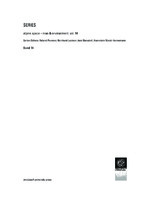Ökonomische Strategien des Naturgefahrenmanagements – Konzepte, Erfahrungen und Herausforderungen
| dc.contributor.author | Psenner, Roland | |
| dc.contributor.author | Weck-Hannemann, Hannelore | |
| dc.contributor.author | Lackner, Reinhard | |
| dc.contributor.author | Borsdorf, Axel | |
| dc.date.accessioned | 2014-10-26 00:00:00 | |
| dc.date.accessioned | 2020-04-01T14:40:20Z | |
| dc.date.available | 2020-04-01T14:40:20Z | |
| dc.date.issued | 2012 | |
| dc.identifier | 503815 | |
| dc.identifier | OCN: 1030817981 | en_US |
| dc.identifier.uri | http://library.oapen.org/handle/20.500.12657/33333 | |
| dc.description.abstract | While research on cultural dangers has a traditional focus on natural sciences the social and economic aspects of natural disasters gain increasing interest to allow for sustainable development. Hazard and loss potential need to be evaluated on a social level and alternative measures and risk provision (risk prevention and diminution of risks) as well as risk follow-up actions (diversification and risk transfer) are required. This describes a change in paradigms and a change in natural hazard management by the application of integrative risk assessment and risk management. All possible provisions need to be considered. | |
| dc.language | German | |
| dc.relation.ispartofseries | alpine space – man and environment | |
| dc.subject.classification | thema EDItEUR::P Mathematics and Science::PS Biology, life sciences::PSA Life sciences: general issues::PSAF Ecological science, the Biosphere | en_US |
| dc.subject.classification | thema EDItEUR::R Earth Sciences, Geography, Environment, Planning::RN The environment::RNA Environmentalist thought and ideology | en_US |
| dc.subject.classification | thema EDItEUR::R Earth Sciences, Geography, Environment, Planning::RN The environment::RNK Conservation of the environment | en_US |
| dc.subject.classification | thema EDItEUR::R Earth Sciences, Geography, Environment, Planning::RN The environment::RNR Natural disasters | en_US |
| dc.subject.other | natural disaster | |
| dc.subject.other | alps | |
| dc.subject.other | naturgefahren | |
| dc.subject.other | alpen | |
| dc.subject.other | Deutschland | |
| dc.subject.other | Elementarschaden | |
| dc.subject.other | Euro | |
| dc.subject.other | Europäische Union | |
| dc.subject.other | Hochwasser | |
| dc.subject.other | Kanton Graubünden | |
| dc.subject.other | Katastrophenfonds | |
| dc.subject.other | Versicherer | |
| dc.title | Ökonomische Strategien des Naturgefahrenmanagements – Konzepte, Erfahrungen und Herausforderungen | |
| dc.type | book | |
| oapen.abstract.otherlanguage | Während die Naturgefahrenforschung traditionell stark durch einen naturwissenschaftlichen Zugang geprägt ist, wird neuerdings zunehmend in die Überlegungen einbezogen, dass für einen nachhaltigen Umgang mit Naturgefahren gesellschaftliche und ökonomische Überlegungen explizit zu berücksichtigen sind. Für den optimalen Umgang mit Naturgefahren sind das Gefahren- und das Schadenpotential aus gesellschaftlicher Sicht zu erfassen sowie alternative Maßnahmen der Risikovorsorge (Risikovermeidung und Risikominderung) und der Risikonachsorge (Risikodiversifikation und Risikotransfer) in die Betrachtung einzubeziehen. Ausdruck des Paradigmenwechsels in der Naturgefahrenforschung ist das Konzept des integralen Risikomanagements, bei dem vom Risikokreislauf ausgegangen und Risikoanalyse, Risikobewertung und Risikomanagement unter Berücksichtigung aller potentiellen Maßnahmen integrierend betrachtet werden. | |
| oapen.identifier.doi | 10.26530/OAPEN_503815 | |
| oapen.relation.isPublishedBy | 7e4aa047-ebd5-4269-b6c8-a86925324b93 | |
| oapen.collection | AG Universitätsverlage | |
| oapen.series.number | 14 | |
| oapen.pages | 112 | |
| oapen.remark.public | Relevant Wikipedia pages: Deutschland - https://de.wikipedia.org/wiki/Deutschland; Elementarschaden - https://de.wikipedia.org/wiki/Elementarschaden; Euro - https://de.wikipedia.org/wiki/Euro; Europäische Union - https://de.wikipedia.org/wiki/Europ%C3%A4ische_Union; Hochwasser - https://de.wikipedia.org/wiki/Hochwasser; Kanton Graubünden - https://de.wikipedia.org/wiki/Kanton_Graub%C3%BCnden; Katastrophenfonds - https://de.wikipedia.org/wiki/Katastrophenfonds; Versicherer - https://de.wikipedia.org/wiki/Versicherer | |
| oapen.identifier.ocn | 1030817981 |

